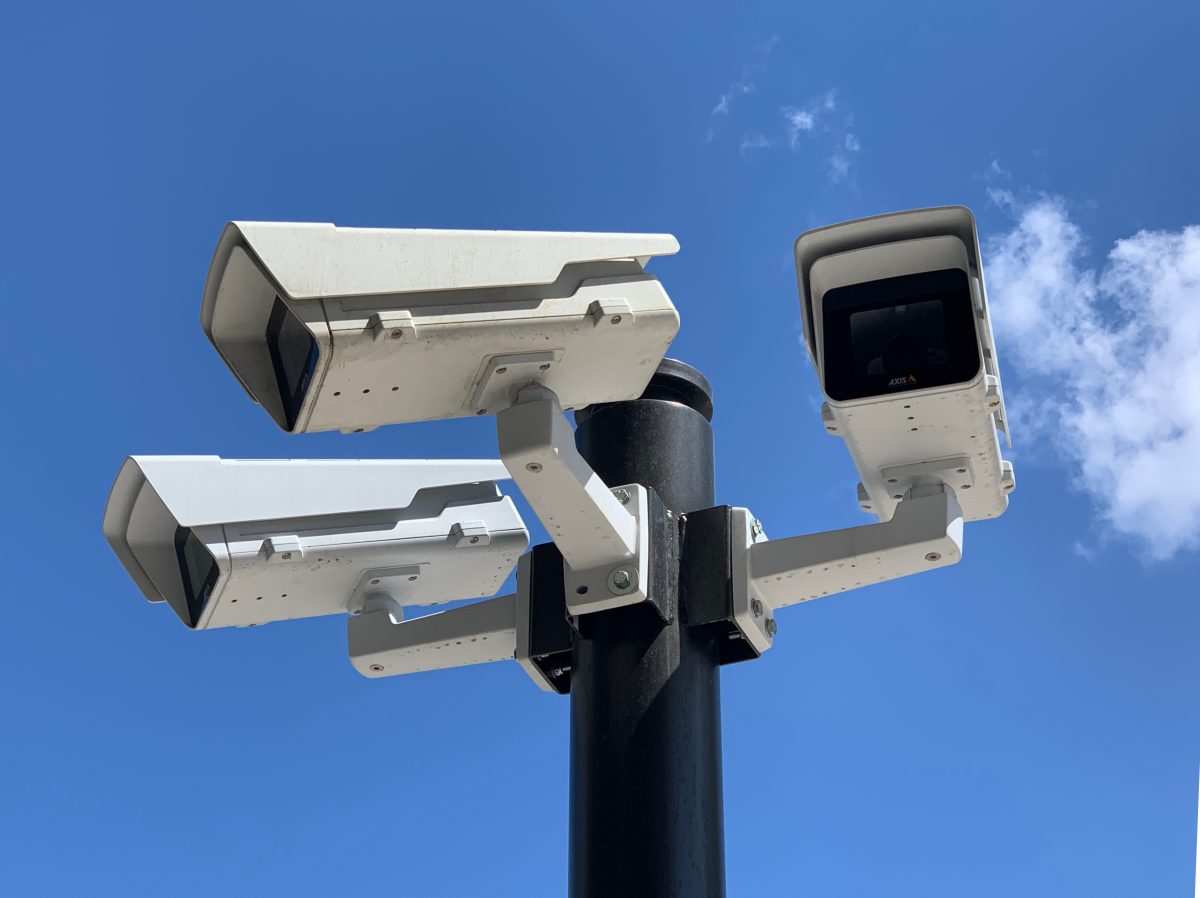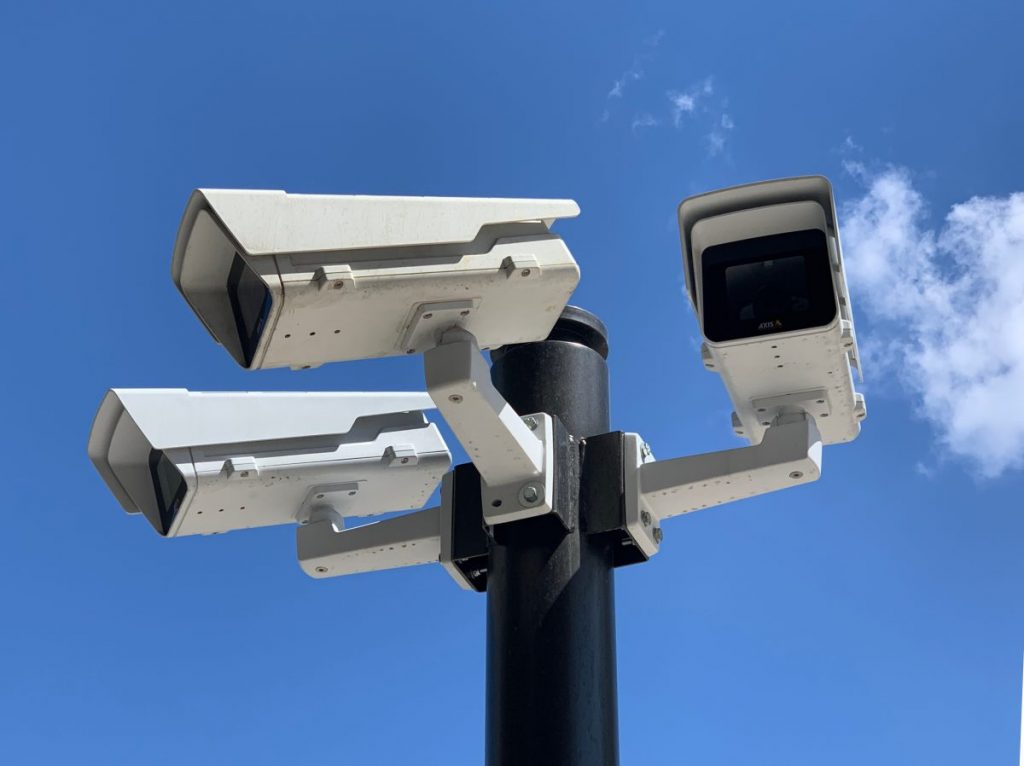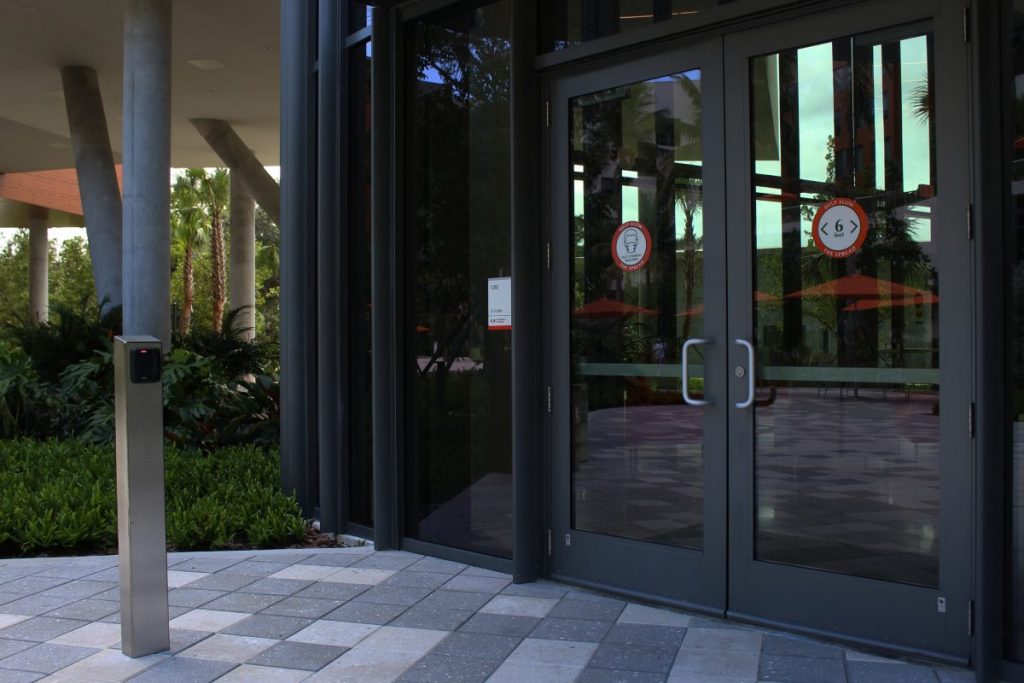

A remote student at the University of Miami, who requested anonymity, decided to meet up with friends on campus back on Oct. 2. However, a week later, she received an email telling her she had been identified on campus and that she must return for a Covid-19 test.
“Dear Student, you have been identified as being on campus in the past 14 days and are required to take a UScreen Covid-19 test at the University’s on-campus testing site located, at Pavia Garage,” read the email obtained by The Hurricane.
The student told The Hurricane that she was confused and “weirded out” that the university knew she was on campus. At first, she did not understand how she was identified considering she was wearing a mask the whole time. Yet, she then realized she did swipe her Cane Card while on campus, signaling to the university she was in fact there.
Beginning this semester, students and faculty have been required to swipe into buildings on campus with their Cane Cards to gain access. Although some buildings always required this, now students and faculty are required to swipe into their classrooms and community buildings such as the Shalala center.
Similarly, a graduate student, who was eating at the popular restaurant and bar Titanic right off campus, received a message from the university about not being allowed on campus after logging onto the university wifi.
These incidents are part of a much larger discussion surrounding surveillance on campus after student protestors were identified and brought into a meeting with Associate Vice President for Student Affairs and Dean of Students Ryan Holmes. During the meeting, the student protestors asked how they were identified, but the university has declined to divulge the process besides using camera footage. Facial recognition was discussed during the meeting, causing many to worry over it’s possible use to identify the student protestors.
After this incident was made public, over 20 human rights organizations signed an open letter, including the ACLU of Florida and Center for Human Rights and Privacy, demanding the university administration and Board of Trustees ban facial recognition and meet with students and faculty to address surveillance practices and Covid-19 concerns. Specifically, the letter asks the university to explain how the student protestors were identified.
“We would like to express our deep concern around the lack of clarity around the university’s surveillance policies and procedures — as well as potential suppression of student’s first amendment rights on campus,” the letter reads. “The surveillance program that includes 1,338 cameras at UMiami is Orwellian at best, and creates an environment incompatible with an institution that values academic freedom and the rights of students, faculty, and staff alike.”
But, UM Police Chief David Rivero vehemently denied using facial recognition on campus.
Although members of the community were concerned about the possible use of facial recognition to identify individuals on campus recently, specifically participants at the “die-in” protest, evidence points to the university using camera footage along with Cane Card swipes and WiFi connectivity to pinpoint students on campus.
For instance, senior Jordan Lewis and culture editor for The Miami Hurricane received an email from Senior Associate Dean of Students and Director of Judicial Affairs Steven Priepke with screenshots of camera footage, requesting her assistance in identifying two individuals on campus.
The email by Priepke, obtained by The Hurricane, titled “Help identifying two people,” states, “Hello, I would like to identify the two people in the attached pictures. Any help you can offer would be appreciated — you will remain anonymous.”

Priepke was not made available for an interview. Instead, the university opted to release the following statement to The Hurricane:
“The University of Miami is concerned about the health and safety of everyone who is on our campuses. We have established guidelines and protocols to protect the University community, and when someone violates mandatory facial covering requirements in public spaces, we will attempt to notify them and remind them of our current protocols.”
UMPD fails to discuss the use of cameras
The Hurricane first reported on the use of cameras this semester when anonymous protesters were identified through their use, as previously mentioned. When reporting on the matter, Rivero provided written responses to a list of provided questions about surveillance on campus. When asked how many cameras UM had and if they were monitored 24/7, Rivero replied:
“UMPD has numerous cameras on the Coral Gables Campus, some of which are monitored 24/7.”
Subsequently, Rivero’s resume was found online. According to the resume, UM has 1,338 cameras that are recording 24/7. Following this, Rivero agreed to a phone interview.
“There’s only like six or seven cameras that we’re monitoring at any one given time, but all cameras can record so if something bad were to happen, we can go back and forensically look at video footage to see if we could possibly identify what happened and who committed the crime,” Rivero said.
Rivero went on to say the camera system is used strictly for safety and security. Thus, not everyone has access to such footage.
“We have a very strict policy,” Rivero told The Hurricane at the time. “The policy is that only UM police employees can look at the video footage. If anyone wants video footage of an incident, they have to submit a request. It has to go through proper channels. We just don’t willy nilly hand over footage or a camera to anybody that asks for it.”
The Hurricane requested an interview with Rivero multiple times for this article. When Rivero requested questions in advance, The Hurricane declined to provide specific questions and instead informed him that the questions were asking about who has access to the cameras and procedures governing their use, but Rivero declined to comment. Rather, the following was issued by the university:
“At the University of Miami, we balance our need to protect the safety of our students with our students’ right to privacy. The University does not employ facial recognition technology in its security measures.”
Following this response, The Miami Hurricane once again asked for an interview with Rivero but were informed he would not be available for an interview. The Hurricane responded by emailing the following and asking for a direct response from Rivero:
“University of Miami has over a thousand cameras on campus. We know that Deans and others have access to footage from the cameras when necessary. What rules and guidelines are in place governing access to this information? Specifically, are there written policies and request forms governing access to them? And can we be provided with these written guidelines and/or rules governing their use?”
Once again, Rivero failed to respond. No proof of rules governing camera use was provided and the form that he had referenced in his previous comments was not made available.
New Cane Card policy bring new questions

Faculty were first informed of the policy that would require expanded Cane Card swipes at a Faculty Senate meeting on Aug. 26. Students were informed of the new policy via email on Sept. 8, saying it was being introduced to prevent the spread of Covid-19.
As the semester has progressed and reports have increased of surveillance around campus, faculty began to express greater concerns about how the information is being used. Faculty point to incidents where the provost was allegedly conducting spot checks and the surveillance of protestors.
“The campus community needs full transparency on any of these tracking or surveillance tools that they are using,” said associate professor of education Scot Evans.
Stories have circulated that UMPD has accessed the information from these required swipes to track down and identify people. Evans, a member of the faculty senate expressed concern over this.
“It was presented to us as a security issue for the building,” Evans told The Hurricane. “If they are using this policy as something in addition to that, we need to be informed of that.”
Evans explains that the faculty senate was never informed that these swipes might be paired with other investigatory techniques, such as the use of cameras.
“We want to know if and how it’s being used for those purposes,” he said. “There is an increasing need for transparency.”
Rivero was also asked if UMPD had access to card swipes and if they had been using them during investigations, specifically in conjunction with cameras. Again, Rivero failed to respond to the question.
“It’s one thing to protect the campus from outside intruders…but when our community is the subject of surveillance it starts to worry me,” Evans said.






